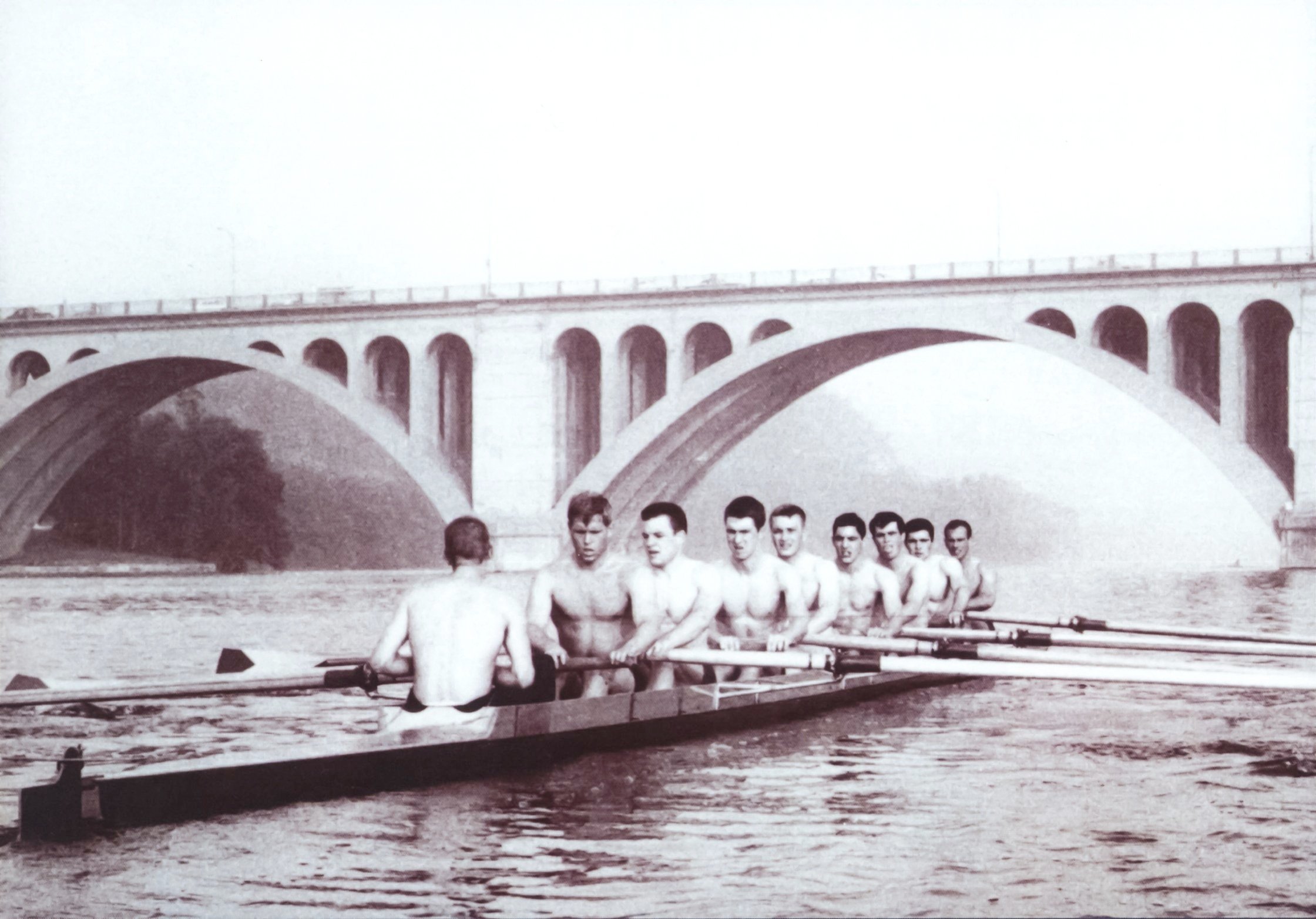
Crew
by Jack Hoeschler, March 2018
My most important athletic and life-changing sport at Georgetown was Crew, which I fell into by accident. During winter break of my Sophomore year, after playing football that Fall, I joined a workout group at McDonough Gym since there wasn’t enough snow to justify a Pennsylvania ski weekend. The group was Georgetown’s fledgling crew and they were interested in me for my size and strength. They urged me to join them at ice-out on the Potomac and learn to row. Even though I had never rowed before, I picked it up quickly. By dint of several “seat challenges” for boat position, I ended up in Seat 5, part of the “engine room” of the Varsity boat, at the start of the competitive season. Miraculously, we went undefeated that season.
Our fairly new coach (for Georgetown) was Don D. Cadle, an unpaid but inspirational leader, a former champion rower at Yale University and Balliol College at Oxford, which he attended as a Rhodes Scholar. Don’s “day job” was with the Bureau of the Budget, then later at NASA where he was Deputy Director of Administration for the space program.
The Georgetown crew was a student organized sport which had just gotten official University recognition the year before (though no money beyond boathouse rent). Our amateur endeavor played into Don’s driving beliefs that rowing should be student led, as it was at Oxford. Don also strengthened our Crew by importing numerous English club traditions to Georgetown rowing: student leadership, volunteer coaches, Welsh Rabbit and Black Velvets at celebratory meals; burning a shell after an undefeated season (my first season made national news as such), and the motto (also Balliol’s) “Never Row.”
Don and his lovely German-born wife, Inge, paid for most of our rowing necessities: a launch and gas, rowing shells, oars, uniforms (striped shirts from Oxford and wool shorts from Germany). We oarsmen paid our own expenses for meals and out of town regatta trips. We raised money by selling cookies.
We rowed every morning from 5:30 to 7:30am on the Potomac (except when there was ice on the river). We usually organized several boats’ worth of men (9—8 rowers and 1 cox) in our cars before we’d drive to the boathouse; it did you no good to be short a rower so these early morning roundups were thorough!
We performed well, surprisingly well, and became a small college national force in the years I rowed from 1962-64 (3 seasons). We were undefeated in ’62 and won the Dad Vail Regatta in Philadelphia (small college championship) several times. Don made us believe in ourselves and we performed, generally, to expectations. Moreover, we had all these wonderful new-old traditions, reinforced by Dick McCooey, a Georgetown graduate who had never rowed but admired crew. Dick owned the lovely 1789 Georgetown pub/restaurant and hosted many formal dinners for us there. We had arrived!
Several of us also stayed in DC the summers of 1963 and 1964 to prepare for the Olympic Trials. I and several others got jobs, through Don Cadle, at NASA. One of my tasks at NASA was to track expenditures per congressional district for members of the House of Representatives. I also led a project to calculate our eventual moon landing if our scheduled milestones continued to be slipped at the same rate. I predicted we would not make a moon landing until 1972 at the current rate. Clearly, NASA got its act together after I left since we landed on the moon in 1969, the year Kennedy predicted.
On November 22, 1963 President Kennedy was shot in Dallas, Texas, 12:30 pm there and 1:30pm in Washington, DC. That day. I spent the morning at the Library of Congress, doing some research, then stopped by the NASA offices on Independence Avenue, on my way back to Georgetown, to check in with my summer-job boss. My boss’s secretary interrupted us to announce that Kennedy had just been shot. We were not sure what had happened, so we rushed down the hall to the NASA headquarters communications center. The communications center housed multiple television monitors and teletype lines that were used whenever there was a major space rocket lift off and landing. It was fascinating and somewhat disquieting, to observe then that our government’s secret communication links knew less about the events in Dallas and the President’s condition than the national news networks. Everyone alive and of a certain age in 1963 remembers exactly where they were when Kennedy was shot; I certainly do.
In May 1964 of my Senior year I won the Robert A. Duffey Scholar-Athlete Award, a great and surprising honor. Surprising because as a rower you are anonymous—the boat wins or loses depending on how well the coxswain and 8 oarsmen work together. I believe only two rowers have ever won this award at Georgetown; when I attended Georgetown the big sport was track. In 2005 Nonna and I attended the 50th Anniversary of the Duffey awards where we sat with a number of track awardees. One of the guys from a 1960’s class said he was always impressed that when the track team went to practice at 8am, the crew was just returning from its 5:30am practice!
Although our Georgetown crew worked hard those summers, we were crushed at the summer Olympic trials by the Vesper Boat Club of Philadelphia (and a few other Ivy League teams!). But despite this disappointment of not getting to the ’64 Olympics, Crew was a fabulous life-molding experience, and the activity where I made my best college friends from several classes. We oarsmen have continued to get together for reunions in Philadelphia and DC. My best reunion was in 1989 when Kristen, rowing for Columbia’s JV, was in the same seat as I (then #6) and rowed right after our ceremonial ‘row-by.’ I was very proud when I got my ceremonial gold medal (much fancier than the ones I got in the 1960’s) and she got her silver medallion (losing to Navy but beating Georgetown). We never thought in the 60’s that we’d be cheering our daughters on 25 years later!
Dedication of New Boats
By Peter Blyberg, April 13, 2024, at Thompson Boat Center:
First of all, I want to give you a history lesson, because the origin of these boats goes back 65 years to the founding of crew. (Response from crowd: “Wow!”)
I was one of the lucky ones who rowed in the early ‘60’s. One crewmate who rowed with me, he was 5, I was 6, was Jack Hoeschler. At that time, all the coaches were volunteers: they got paid “0”; they did it out of the goodness of their hearts. That changed about 10 years into the program, because we needed really good coaches on a solid, regular basis.
Anyway, when we graduated, Jack and I each married: Jack married Linda (points to boat) and I married Carol (points to boat). We were both married for over 50 years. Our spouses died, and we since have gotten together: we’re now married.
About 3 years ago Jack was the instigator of a fundraising effort for the women’s crew, the lightweight crew, because we found, and we heard that the coaches’ salaries for the women’s lightweights were irregular. Anyway, it was not enough to keep good coaching, so we raised $250,000 to supplement the salaries that the University has offered to your coaches, because you deserve good coaches. You have earned that respect; you have earned that from us.
So, I got the idea from Kendall, wherever Kendall is (Peter looks around crowd). She said you needed two Doubles, a Pair and a Double. I volunteered to buy those two Doubles because II wanted to name one after Linda, and the other after Carol (to whom I was married for almost 53 years).
The reason I wanted to do Linda and Carol together, is that Linda is the glue that held that first cohort of rowers together from the early 60’s. We still meet together, we still have dinners together, have reunions together. It’s an incredible bond that was formed, and I hope that all of you have that bond and continue that bond as you go forward. It is so important.
Somebody from our class described it as “It wasn’t Georgetown University; it was the University of Rowing at Georgetown” because that’s what they remember! (Great laughter)
It was here (pointing around), all the sweat, the tears, the blood, the calluses which you develop (holding up his hands to laughter).
I wanted to recognize Linda and I wanted to recognize Carol (I’ve got them backwards! Peter reverses his pointing to each boat, to more laughter) because Linda would arrange our reunions, and Carol would work with her. The two of them sealed this bond with us oarsmen. Carol was the unofficial photographer; she would take the photos. She would say to me “I’m never in any photos!” I would say “That’s because you’re taking them!” (Laughter) But the two of them were close friends, they worked well together, and I thought it only fitting that we name one after each of them, Carol and Linda.
I’m pleased that today I’ve got my daughter, Janet, to christen the Carol B., and I’ve got Linda’s daughter, Kristen, to christen the Linda HB.
(Kristen adds: My dad was Jack, and so they were rowers together at Georgetown [pointing to Peter]. I love that they [Peter and Linda] have this relationship together, and that Peter’s part of our life now, even though my dad’s not here, and Carol’s not here. And I like having Janet! I went to Columbia and rowed crew there, yeah, Columbia!)
(Janet adds: I didn’t row crew but I went to GW.)
Both women pour a bottle of champagne on the boats named for their mothers, to great cheers and applause. At the end they clink their empty bottles.

Annual Canoe Trip
In 2012 Jack organized an annual canoe trip to the Boundary Waters in northern Minnesota for a small group of Georgetown crew members of his generation. Fellow oarsmen would fly in to Minneapolis right after Labor Day at spend the night at the cottage on Gem Lake. The next day the group would head up to Ely to spend five or six days canoeing, camping, fishing and hanging around the campfire. Over the years there have been many memories created of shared adventures and misadventures. One of Jack’s purposes in doing these trips was to introduce his fellow alumni to the beauties of Minnesota. In that he succeeded.
Jack was a raconteur par excellence and his fellow paddlers looked forward to his repertoire of stories, like the Death of Diamond. After a day on the water we would find a campsite, pitch tents and Jack would retire for an hour or so before dinner to “rest”. In reality he would crawl into his tent to read. The truth was that Jack could and did nap anywhere, anytime, in the canoe or on a warm rock in the sun. The canoe trips go on in accordance with Jack’s wishes to keep binding people together through shared experiences and memories.
by Peter Blyberg, 2022
Tiger Sargeant, Jack and Fred King

Jack




Olin Woods, Bill Crusey, Peter Blyberg, Rick Reynolds and Pat McArdle

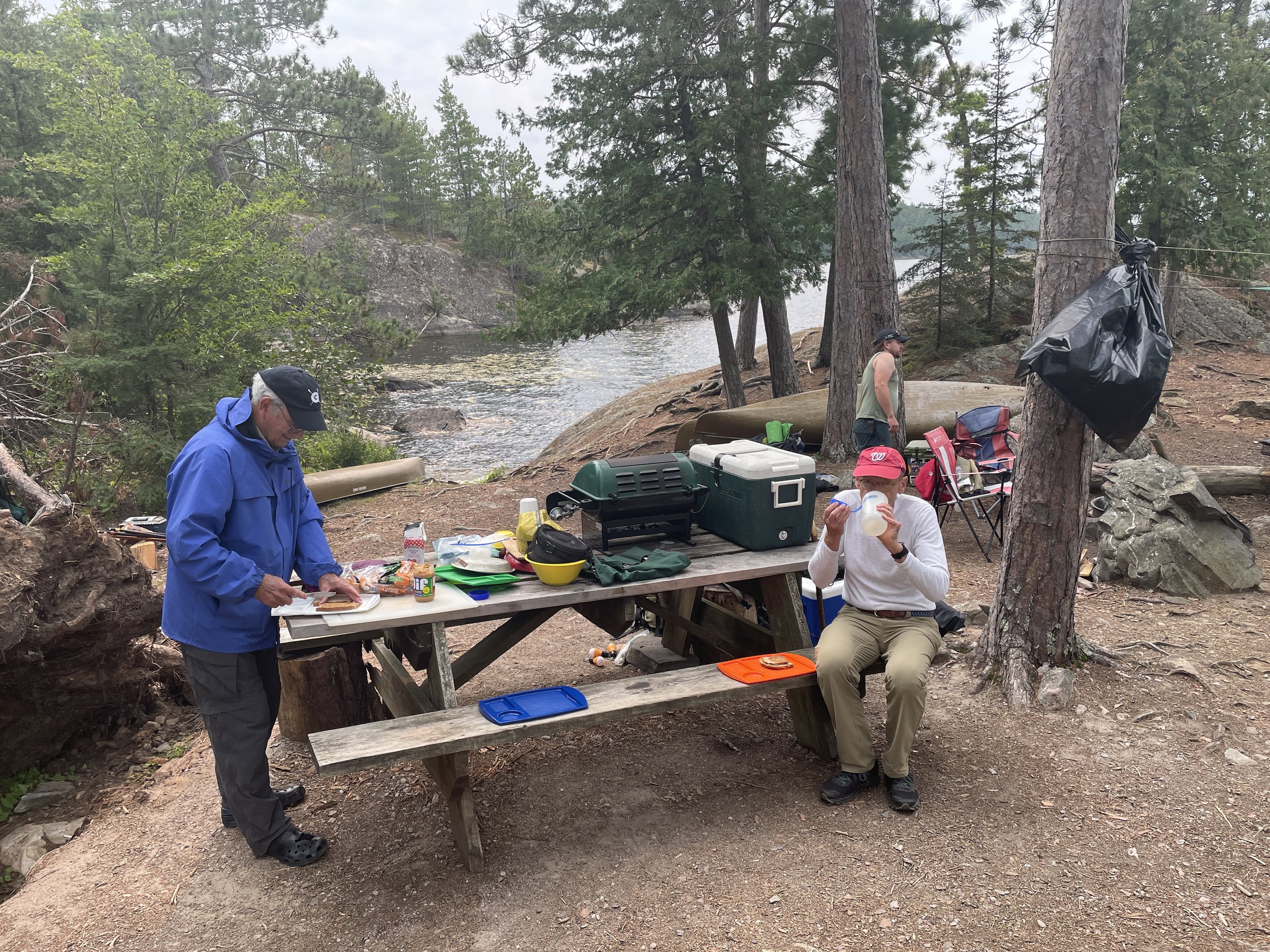
Bill Crusey,Rick Reynolds and Peter Blodgett


AJ, Pat McArdle, Bill Crusey, Olin Woods

Peter Blyberg
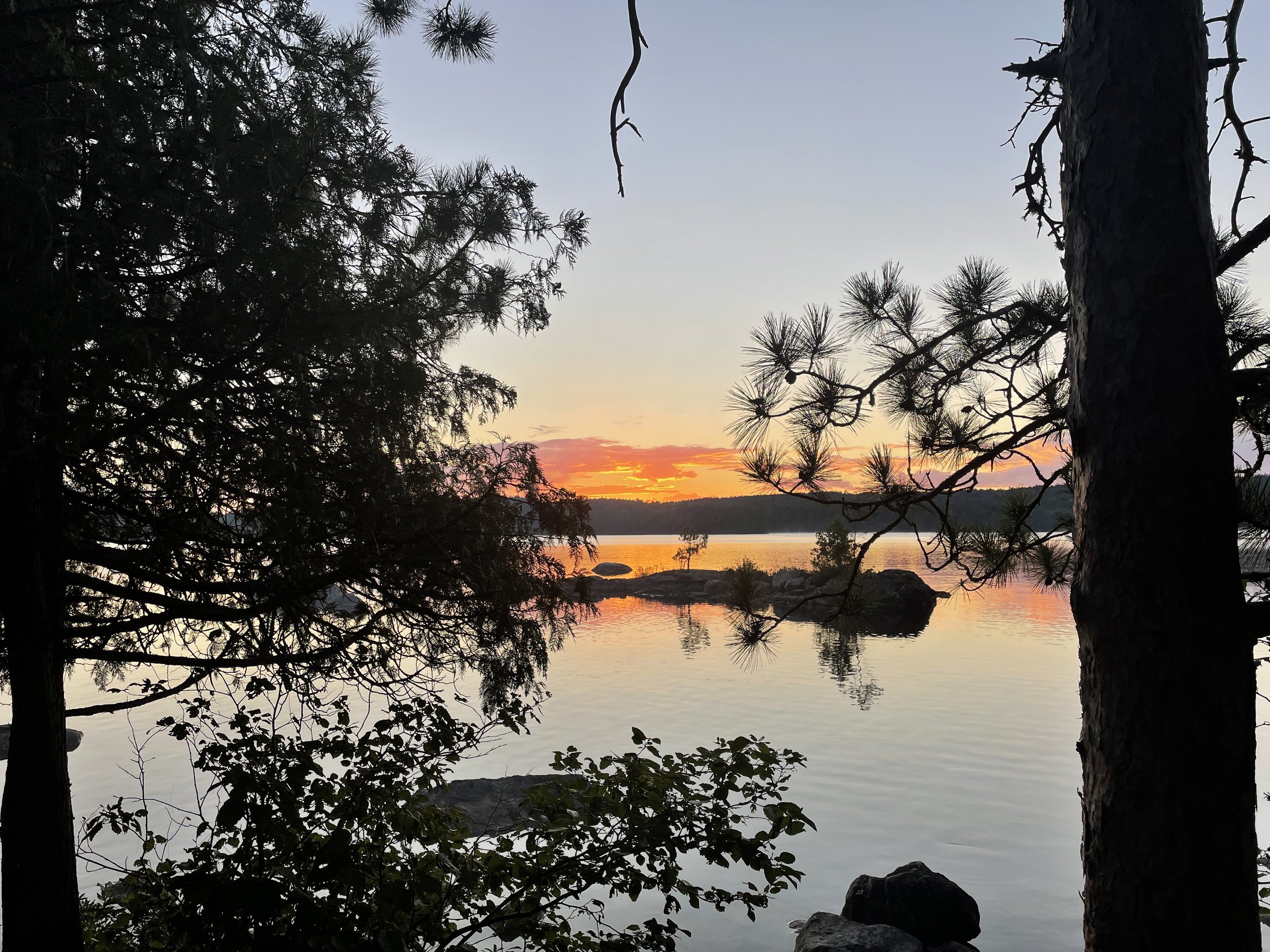

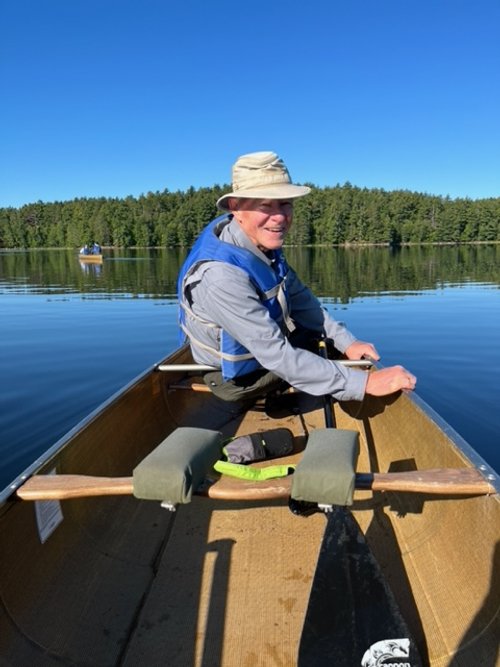
Olin Woods
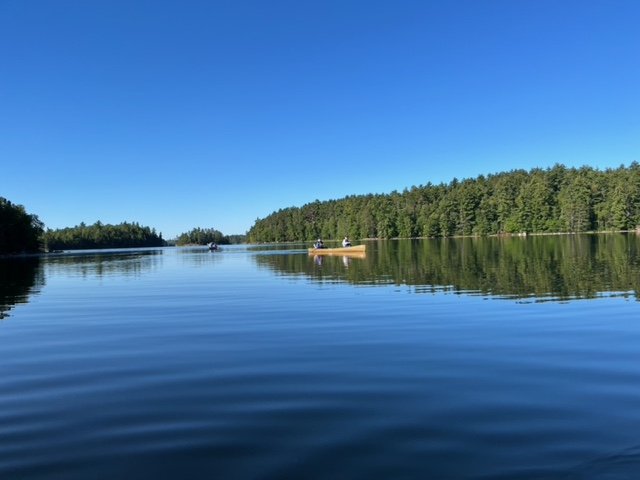

AJ, guide
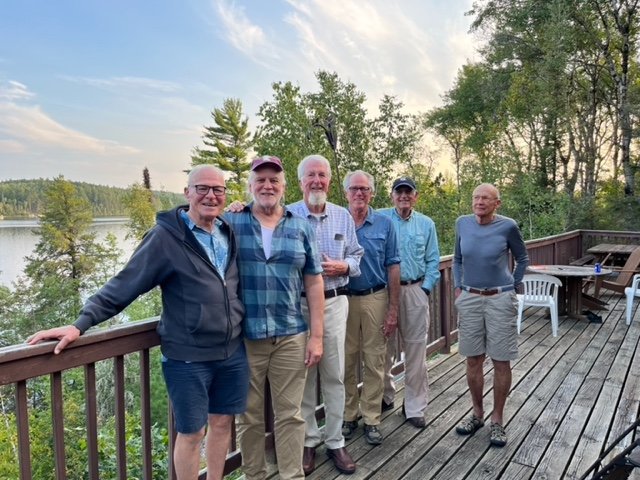
Olin Woods, Pat McArdle, Peter Blyberg, John Soisson, Bill Crusey, Rick Reynolds
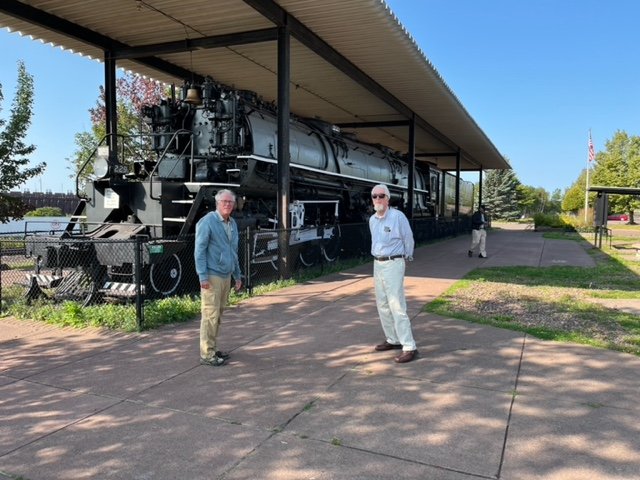
John Soisson, Peter Blyberg

John Soisson
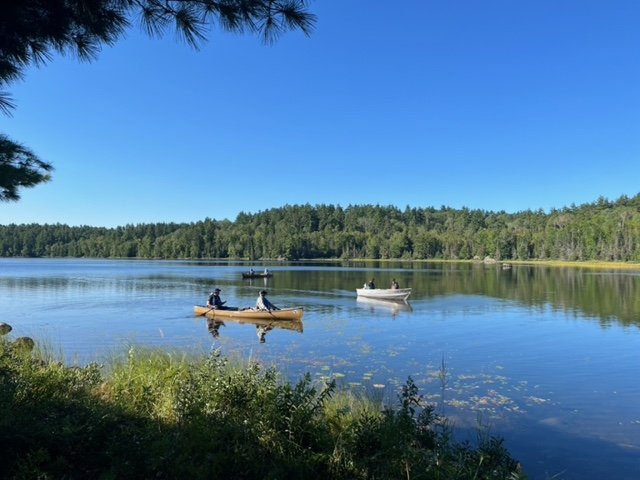

Tiger Sargeant, Rick Reynolds, Fred King


Jack napping

Peter Blodgett

Peter Blodgett, Tiger Sergeant, Jack, ?, Jim Hanna
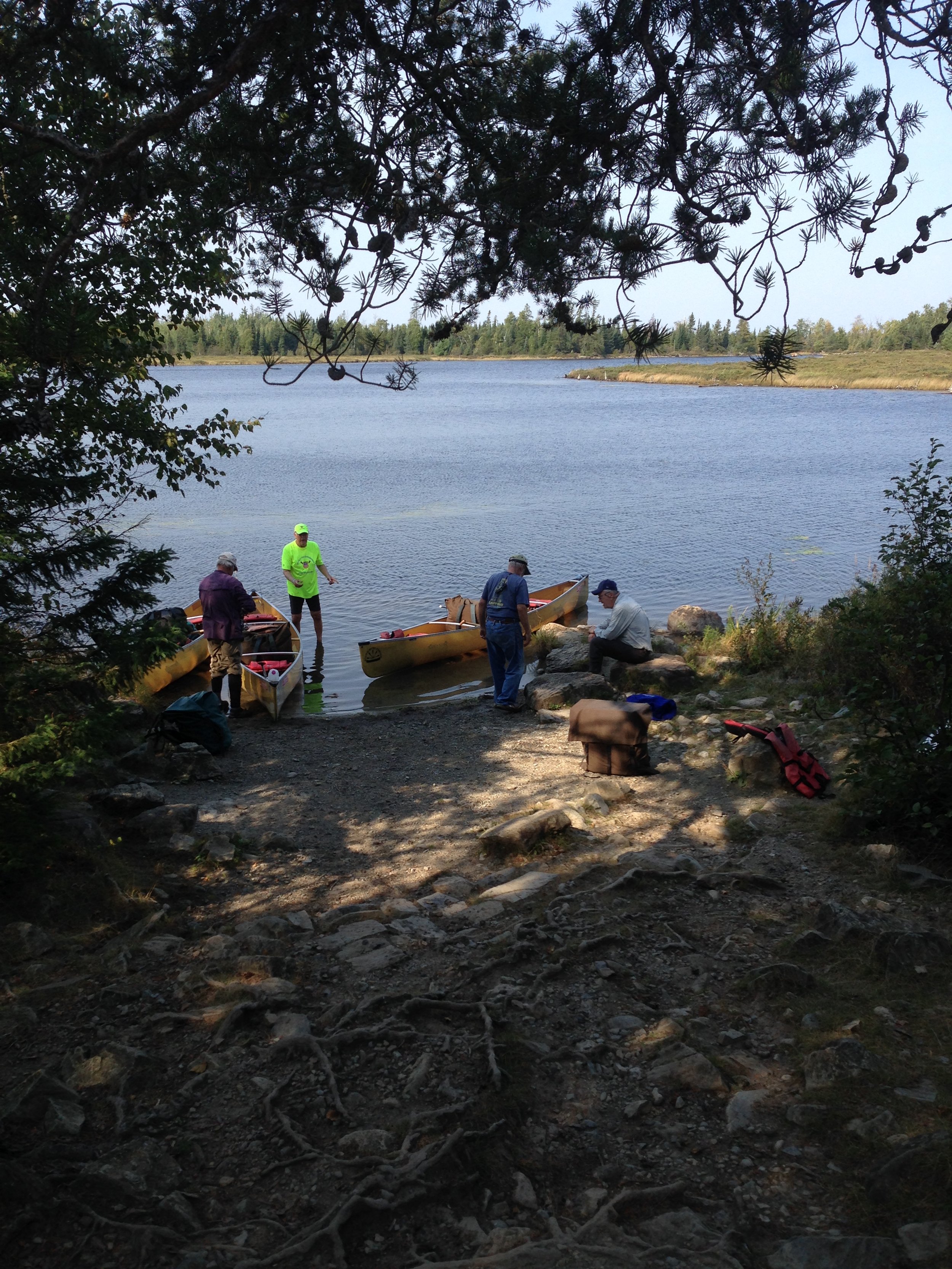

Rick Reynolds
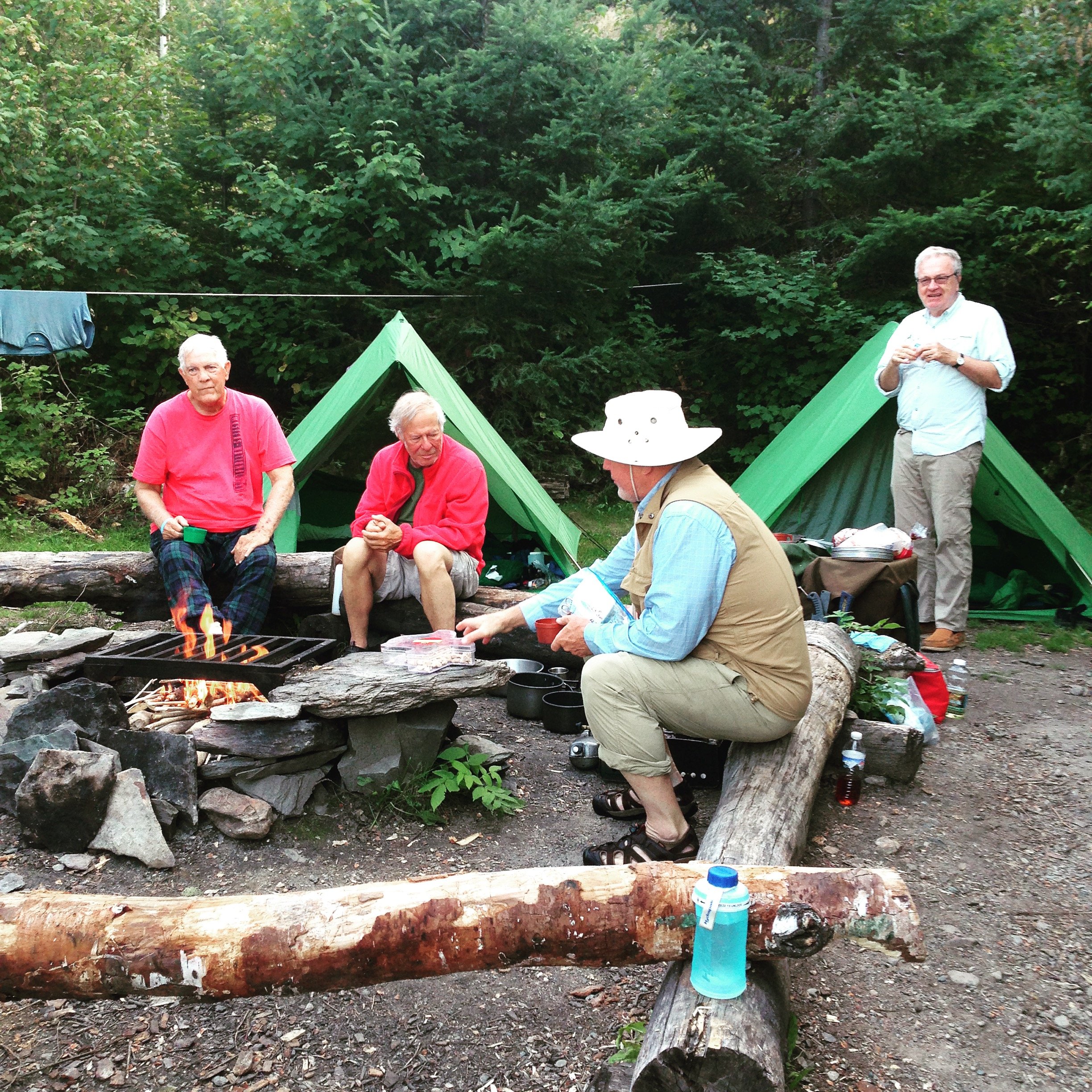
Fred King, his friend ?, Jim Hanna, Jack
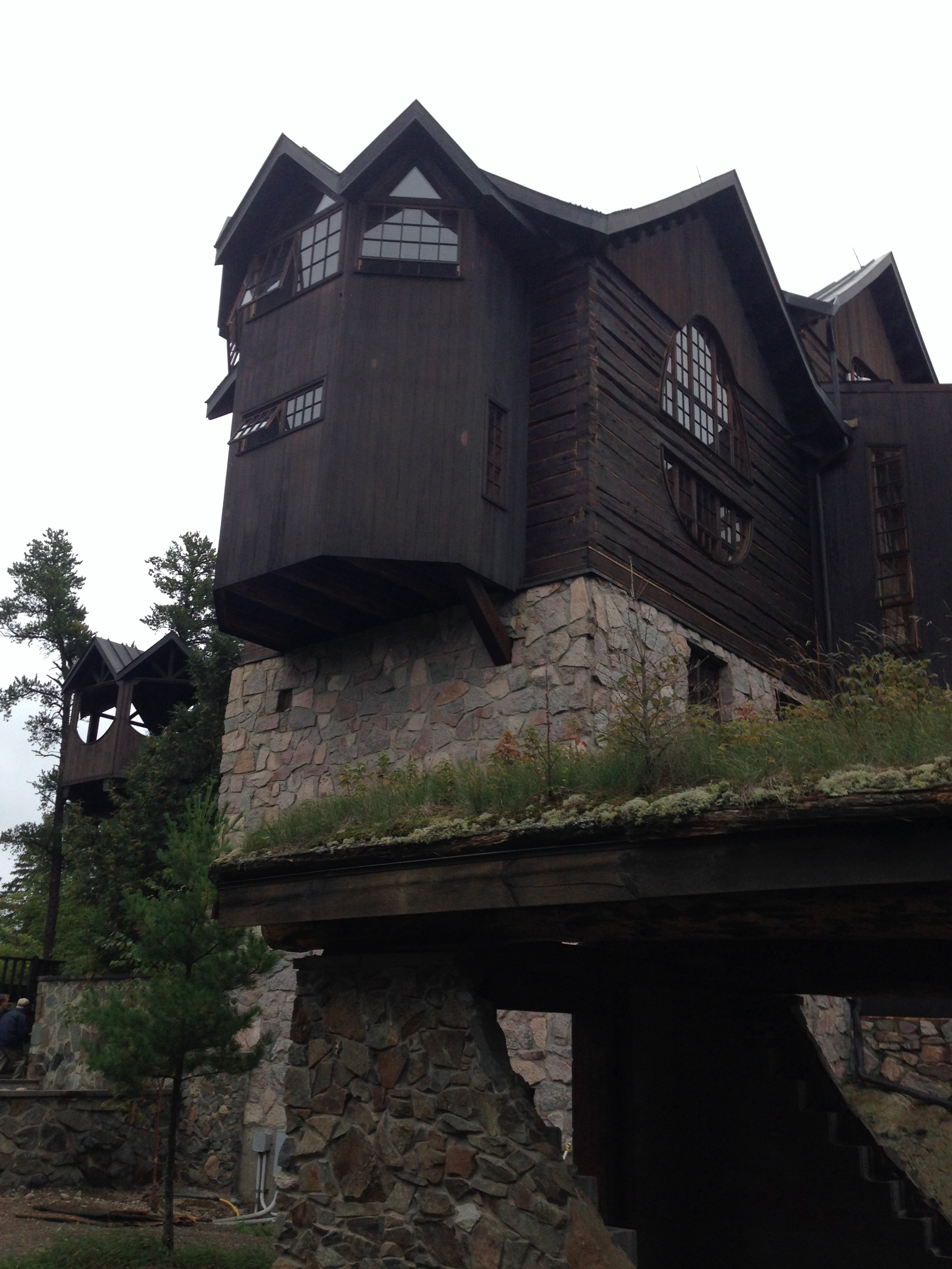

Peter Blodgett, Bill Crusey, Nick Carlucci, Jack




Bill Crusey, Rick Reynolds, Peter Blodgett


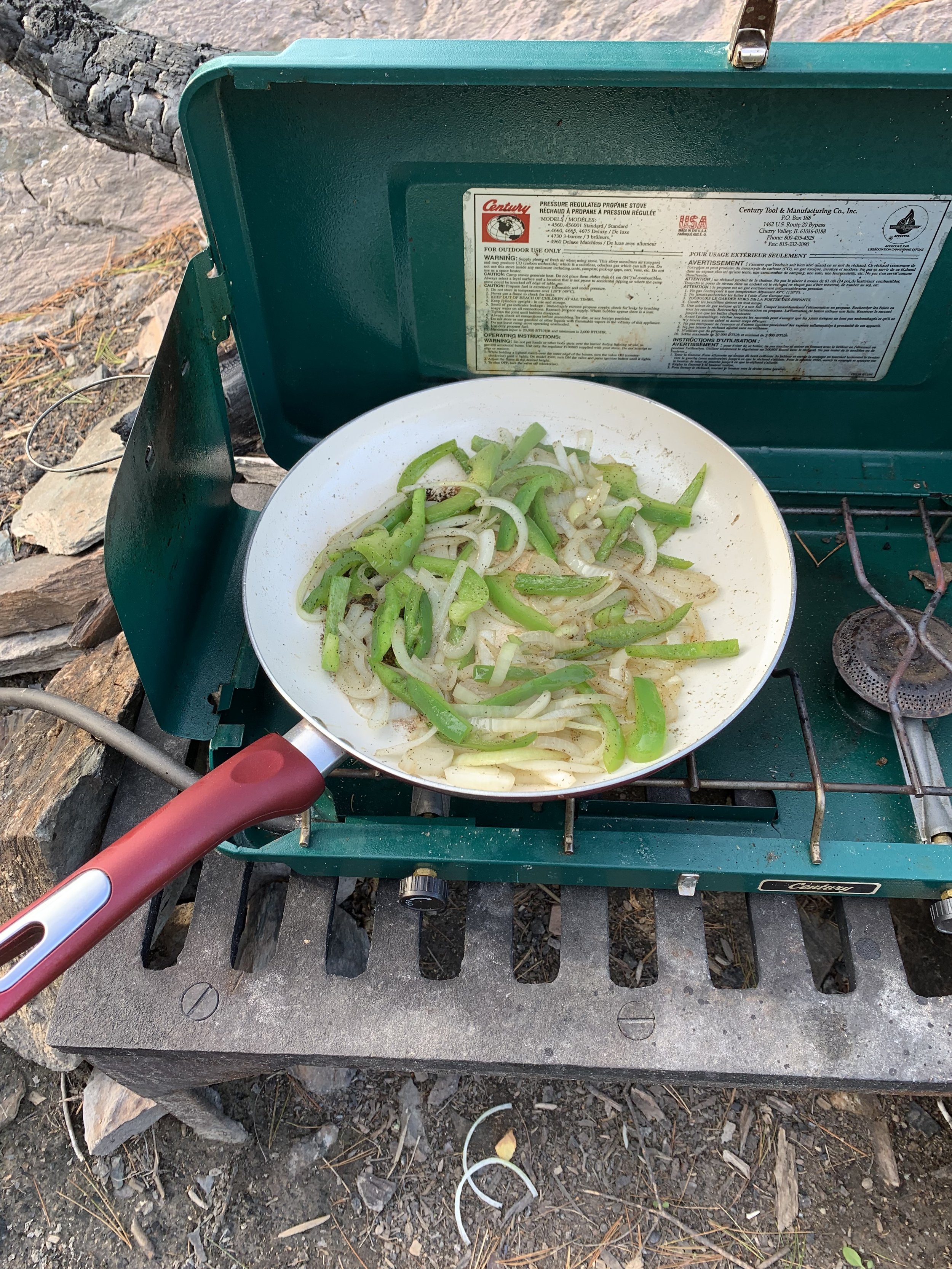


Rick Reynolds, John Bowe

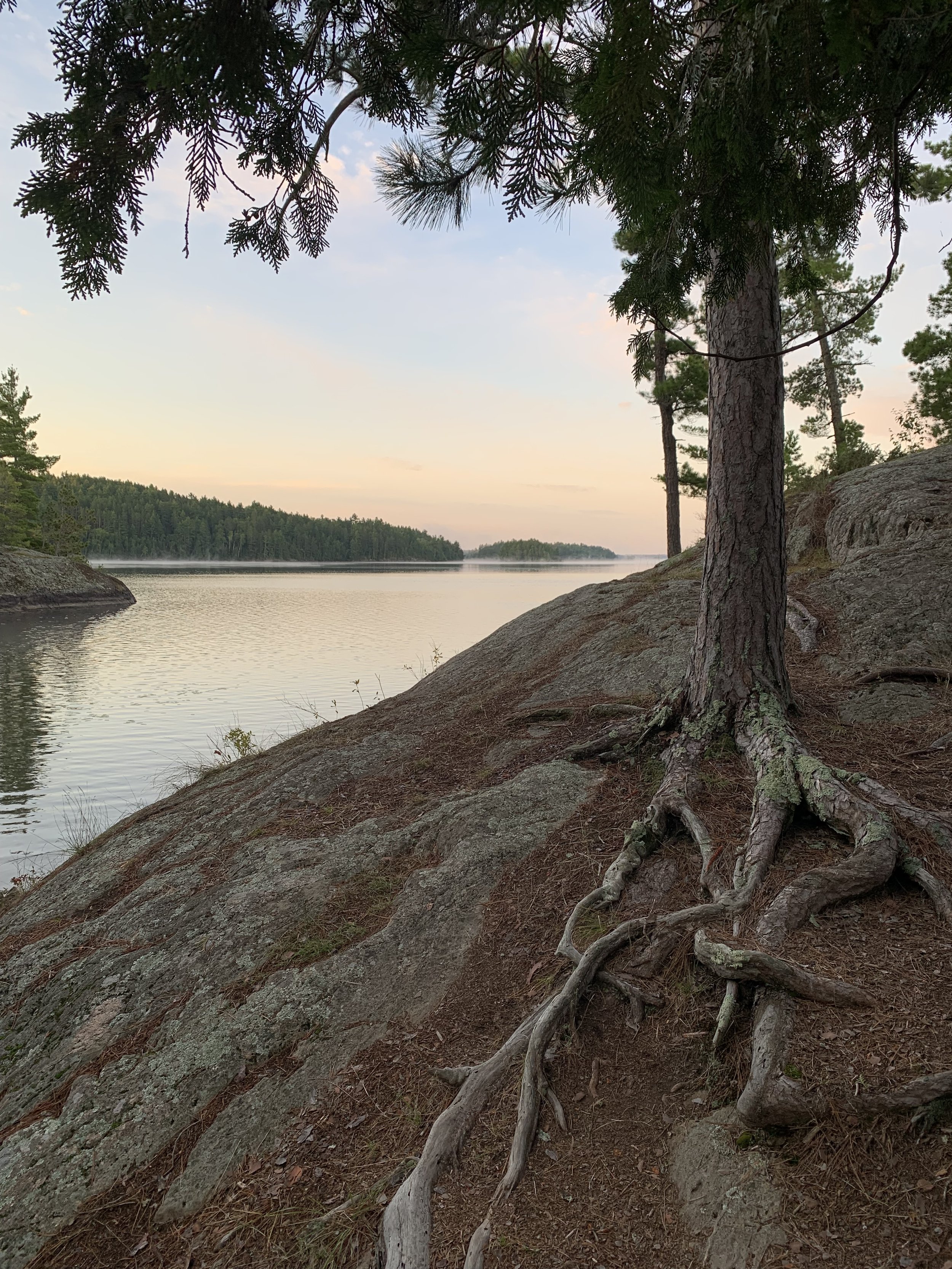

Rick Reynolds

Olin Woods (napping), John Soisson

John Soisson, Olin Woods

John Soisson

Fred King, Tiger Sergeant, Peter Blodgett






















































































































